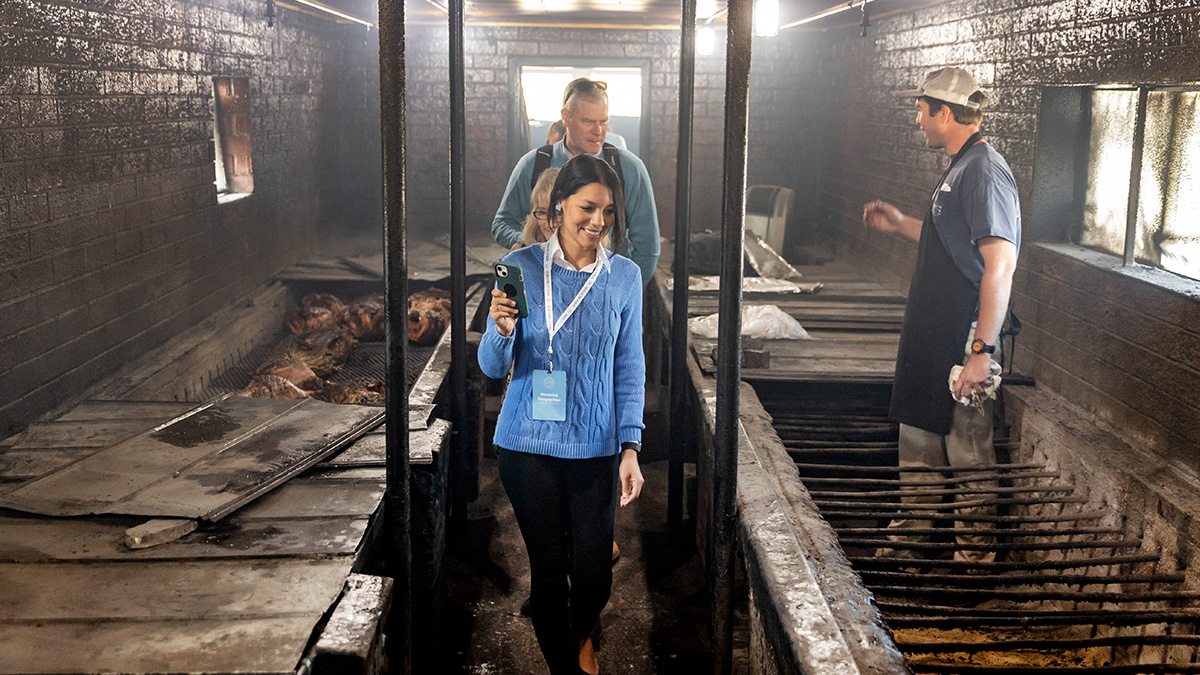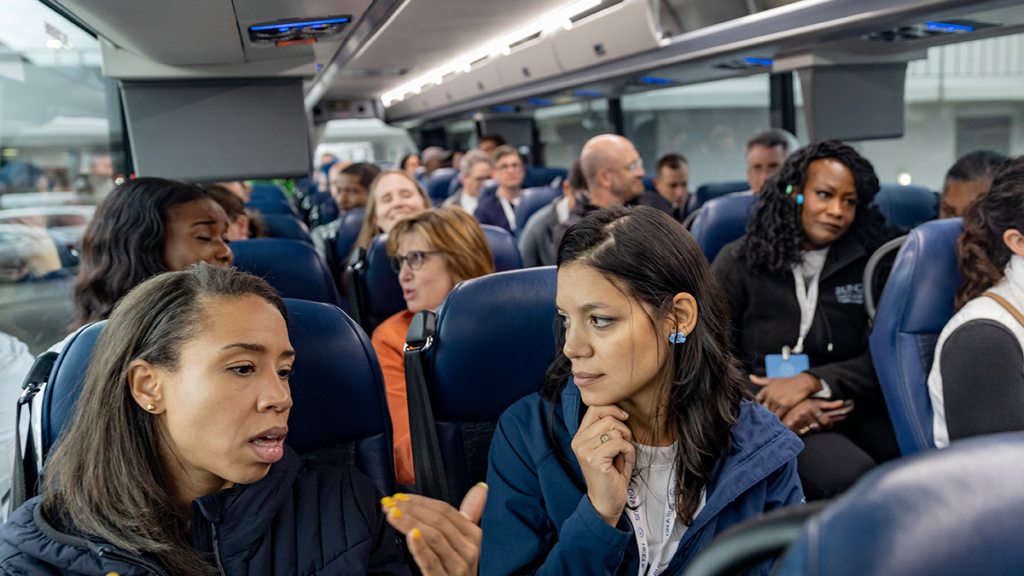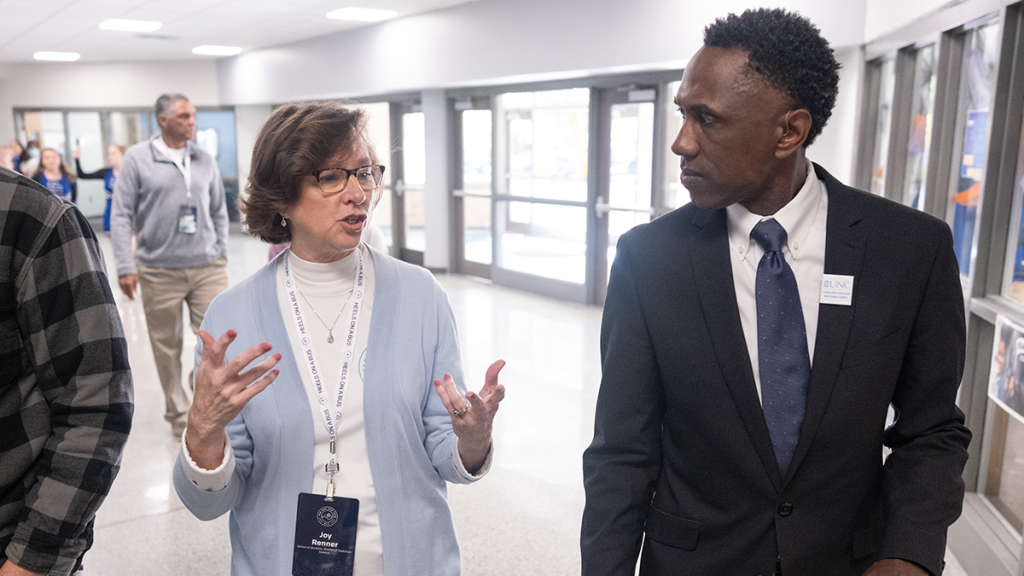Heels on the bus share insights
Looking back on the 2023 Tar Heel Bus Tour, Joy Renner and Veronica Flaspoehler reflect on what Carolina can learn from its home state.

The 2023 Tar Heel Bus Tour concluded Oct. 20, making 21 stops in 19 North Carolina counties and covering more than 1,000 miles. Carolina faculty and administrators take the trip to learn about the University’s work in the state and to hear how they can partner to help solve challenges residents face.
Joy Renner, the UNC School of Medicine’s director of radiologic science, rode the West bus, and Veronia Flaspoehler, president of the General Alumni Association, traveled on the East bus. They answered questions about their experience and how it will shape their continued work at Carolina.
Which tour stop sparked the most conversation and why?
Renner: There was vibrant and engaging conversation around all the stops. Each illuminated unique challenges and opportunities for the community and UNC. We were impressed by the compassionate passion these community leaders shared with us. They have the drive and passion to move beyond the losses and challenges, collaborating with their residents and UNC partners to build sustainable communities while respecting and honoring the heritage, culture and people of their area.
Flaspoehler: The stop in Pembroke stands out. We visited the Museum of the Southeastern American Indian at UNC Pembroke and learned about the history and contemporary issues of American Indians, with special emphasis on the Native American communities of Robeson County. It was also inspirational to learn about how UNC is partnering with Robeson County to provide leadership training and funding for community leaders. After lunch, we were lucky enough to experience traditional Lumbee songs and dancing!

Veronica Flaspoehler (right) talks with Candice Powell, director of the Carolina Covenant in the Office of Scholarships and Student Aid. (Johnny Andrews/UNC-Chapel Hill)
What is one thing you were surprised to learn about North Carolina?
Renner: What surprised me most was the depth of loss and challenge some communities face. What did not surprise me, but is so encouraging, is the enterprising nature of the leaders to find solutions and a way forward. One example is taking the issue of teenagers and young adults who are out of school and unemployed. They are still developing collaborative programs to build unique skills that will not only land them the first job but prepare them for continuing job growth.
Flaspoehler: We were guided on a tour of East Kinston by Chris Suggs, class of 2021 and the youngest elected official in North Carolina. Chris took us to the southeastern edge of town, where there was once a vibrant community called Lincoln City, segregated from the wealthier side of Kinston but full of businesses, churches and houses. In 1999, Hurricane Floyd flooded the community and washed away Lincoln City. FEMA purchased the land in 2000 and no one has lived there ever since. Chris founded the nonprofit Kinston Teens and has embarked on several initiatives to serve and improve East Kinston and has a dream to make Lincoln City vibrant again.

Joy Renner, the UNC School of Medicine’s director of radiologic science, talks with Ni-Eric Perkins, director of Carolina College Advising Corps, at Polk County High School in Columbus, North Carolina. (Jon Gardiner/UNC-Chapel Hill)
What lessons will you take away from the experience and implement back at Carolina?
Renner: The students from Polk County High School were articulate regarding their goals and education plans and describing the rich experiences they have in high school. The excitement on their faces and optimistic attitudes were reminders why UNC needs to strive to meet the learning expectations of these future leaders and problem-solvers. Working together, we can ensure a strong, productive, healthy place for North Carolinians to thrive and stay in communities from Old Fort to Charlotte.
Flaspoehler: Two words – community and collaboration. The theme throughout the bus tour was building community and empowering communities through strategic collaboration. We have a very special thing at UNC and by leveraging our collective strengths, there is nothing we can’t do. We also have incredible alumni across the state and by helping our alumni make connections with on-campus faculty and resources we can accomplish a lot of amazing work across so many communities.







